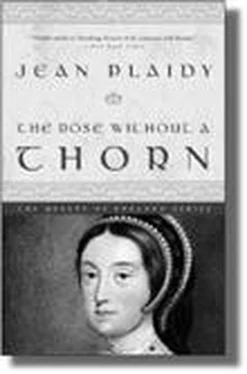Jean Plaidy - Mary, Queen of France - The Story of the Youngest Sister of Henry VIII
Здесь есть возможность читать онлайн «Jean Plaidy - Mary, Queen of France - The Story of the Youngest Sister of Henry VIII» весь текст электронной книги совершенно бесплатно (целиком полную версию без сокращений). В некоторых случаях можно слушать аудио, скачать через торрент в формате fb2 и присутствует краткое содержание. Жанр: Старинная литература, на русском языке. Описание произведения, (предисловие) а так же отзывы посетителей доступны на портале библиотеки ЛибКат.
- Название:Mary, Queen of France: The Story of the Youngest Sister of Henry VIII
- Автор:
- Жанр:
- Год:неизвестен
- ISBN:нет данных
- Рейтинг книги:4 / 5. Голосов: 1
-
Избранное:Добавить в избранное
- Отзывы:
-
Ваша оценка:
- 80
- 1
- 2
- 3
- 4
- 5
Mary, Queen of France: The Story of the Youngest Sister of Henry VIII: краткое содержание, описание и аннотация
Предлагаем к чтению аннотацию, описание, краткое содержание или предисловие (зависит от того, что написал сам автор книги «Mary, Queen of France: The Story of the Youngest Sister of Henry VIII»). Если вы не нашли необходимую информацию о книге — напишите в комментариях, мы постараемся отыскать её.
Mary, Queen of France: The Story of the Youngest Sister of Henry VIII — читать онлайн бесплатно полную книгу (весь текст) целиком
Ниже представлен текст книги, разбитый по страницам. Система сохранения места последней прочитанной страницы, позволяет с удобством читать онлайн бесплатно книгу «Mary, Queen of France: The Story of the Youngest Sister of Henry VIII», без необходимости каждый раз заново искать на чём Вы остановились. Поставьте закладку, и сможете в любой момент перейти на страницу, на которой закончили чтение.
Интервал:
Закладка:
She and Charles were riding together through the countryside with a few of their attendants when, passing a river, they heard cries and, pulling up, saw a child of about three or four years struggling in the water.
Charles was the first out of his saddle and, striding into the river, grasped the child and brought her to the bank.
His handsome clothes were ruined by the water and the child was so still that she appeared to be dead.
“She is not dead,” cried Charles. “We must take her back to the house as quickly as possible. Give me your cloak, Elizabeth, and we’ll wrap it about her. Everything I have on is saturated.”
When the child was wrapped in the cloak, Charles remounted, and, holding her in his arms, took her back to the house. There he and Elizabeth looked after the little girl, who was suffering from shock and chill; but apart from this no harm had come to her and in a few days she was well.
When they questioned her she was able to tell them that she had neither father nor mother. Charles made inquiries in the village, where he learned that she was an orphan only tolerated by an aunt who had a brood of her own and did not want her. It was clear that this callous woman was far from grateful to Charles for saving the child.
“What shall we do with her?” asked Elizabeth.
Charles laughed. “I’ll not have made such an effort in vain. I came here to find one ward. It seems I have found two. I also have two daughters. I am going to send this child to be brought up with them.”
So Elizabeth found clothes for the child, who followed Charles wherever he went, rather to his amusement.
Elizabeth, who was not demonstrative and did not win the child’s affection as Charles had done, watched solemnly. She knew that Charles took pleasure in the child’s devotion, largely because he had saved her life.
Elizabeth said: “You are a kind man, but I think a vain one.”
“At least,” he answered with a laugh, “I have won some small approval.”
Before he left for Court he had persuaded her to make a contract of marriage with him, assuring her that this contract could be broken if, by the time she was of a marriageable age, she had no desire to continue with it.
He took with him the child he had rescued, and placed her with his own daughters, where she was to be cared for as one of them.
He was not displeased with that adventure. Now that he had the marriage contract he knew that Henry would create him Viscount Lisle; he would have the title in advance, and he had not to think of marriage for another five years.
When he returned to Court Mary demanded that he meet her secretly in the gardens of Greenwich Palace.
She turned on him angrily when he came to her. “So you are affianced to Elizabeth Grey!”
“At the King’s command.”
“Is it fitting that a man should have a wife found for him? I should have thought any worthy of the name would have chosen for himself.”
“I am not yet married.”
“But affianced … for the sake of her money and title, I understand.”
“For the sake of the King’s pleasure,” he retorted.
“And when does this marriage take place?”
He took her by the shoulders and shook her a little. “My Princess,” he said, “I am affianced to a girl of eight. It will be five years before we can marry. A great deal can happen in five years. When I entered into this contract I was playing for safety.”
She began to laugh suddenly, holding up her face to his. He kissed her and the passion in her delighted and alarmed him.
“Five years’ grace for you,” she said when at last he released her. “About two for me. Much can happen in five years … even two years. Charles, my mind is quite made up.”
“My dearest, do not allow your impetuosity to destroy us both.”
She threw her arms about him once more.
“Nay, Charles,” she said. “I’ll not destroy us. But I will find a way … and so must you.”
He wondered afterward whether his position had not in fact become more dangerous since his betrothal to little Elizabeth Grey.
The King was angry. His first foray into France had been a dismal failure, and the English were a laughingstock on the Continent of Europe. It was true Henry himself had not crossed the Channel but he was very put out because his soldiers had, as he said, failed him. His force, under the Marquis of Dorset, had landed in Biscay where they were to attack France while Ferdinand took Navarre. Ferdinand, however, had proved himself a questionable ally; he had promised the English Guienne, that region of southwest France which had come to England with the marriage of Henry II, and which the present Henry was eager to bring back to the crown. Ferdinand, however, had no intention of helping the English; all he wanted was for them to engage part of the French army so that he might be relieved of their attentions while pursuing his own goal. Consequently the English had lain at San Sebastian without provisions or arms and, because they drank too freely of the Basque wine, which they found a poor substitute for English ale, they contracted dysentery and, in spite of Henry’s orders that they were to remain at their posts, mutinied and came back to England.
It seemed to Henry then that God no longer favored him. He had lost his son; and now his own men had disobeyed him. He knew that Ferdinand was treacherous, and the fact that he was his own father-in-law did not soften that blow.
There was one way in which he could win back his self-respect. He himself was going to France.
Thus it was that in the May of the year 1513 he decided to lead his own army against the French.
The great cortège was on its way to Dover. An army of fourteen thousand men had already crossed the Channel and were awaiting the arrival of the King; and now Henry was setting out on the first great adventure of his reign.
He was determined that this should be a glorious occasion. He rode at the head of the cavalcade, his coat of gold brocade, his breeches of cloth of gold, his hose scarlet, and about his neck, on a chain of gold, a huge gold whistle encrusted with gems of great value. On this he blew from time to time.
The Queen and her ladies accompanied the party to Dover; and among this party was the Princess Mary, uneasy because Charles was going to war; and, although she loved the dazzling ceremonies before the departure, she hated the thought of the two men she loved so dearly going into danger.
The night before they sailed the four of them were alone together. Henry and his wife, herself and Charles; and she was envious of her sister-in-law who, like herself, was apprehensive, yet at the same time deeply content, because Katharine was pregnant and Henry was very affectionate toward her and had greatly honored her by making her Regent in his absence.
Lucky Katharine! thought Mary, who need make no secret of her fear and love.
Mary threw herself on her knees before her brother that night. “Henry,” she said, “you must take care, and not go into danger.”
Henry laughed aloud. “My dear sister, we are going to war. Would you have me hide behind the lines?”
“Why must there be this war?” demanded Mary.
“Come, come, that’s women’s talk. There must always be wars. We have a country to subdue. I promise you this: when I am crowned, you shall come to see the deed done.”
Mary murmured, her voice shaking with emotion: “Take care of each other.”
Then she turned away and stood at the window, staring out to sea.
Henry was studying Charles shrewdly. “Well, my Lord Lisle,” he said, stressing the title to remind Charles and Mary how the former had come by it, “my sister is deeply concerned for us. Methinks she loves us well.”
Читать дальшеИнтервал:
Закладка:
Похожие книги на «Mary, Queen of France: The Story of the Youngest Sister of Henry VIII»
Представляем Вашему вниманию похожие книги на «Mary, Queen of France: The Story of the Youngest Sister of Henry VIII» списком для выбора. Мы отобрали схожую по названию и смыслу литературу в надежде предоставить читателям больше вариантов отыскать новые, интересные, ещё непрочитанные произведения.
Обсуждение, отзывы о книге «Mary, Queen of France: The Story of the Youngest Sister of Henry VIII» и просто собственные мнения читателей. Оставьте ваши комментарии, напишите, что Вы думаете о произведении, его смысле или главных героях. Укажите что конкретно понравилось, а что нет, и почему Вы так считаете.












